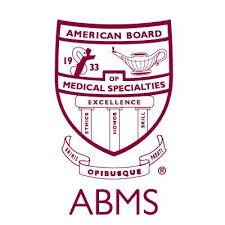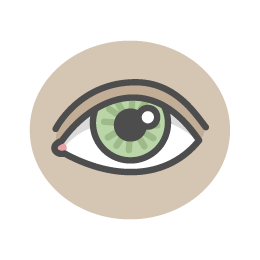
Stephen Gbejule Odaibo MD M.S.(Math), M.S.(Comp. Sci.)
Retinal Disease, Ocular Oncology
Co-Founder, RETINA-AI; Retina Specialist, Medical Associates Clinics and Health Plans
Join to View Full Profile
4901 Calhoun RdHouston, TX 77204
Phone+1 713-743-2020
Dr. Odaibo is on Doximity
As a Doximity member you'll join over two million verified healthcare professionals in a private, secure network.
- Gain access to free telehealth tools, such as our “call shielding” and one-way patient texting.
- Connect with colleagues in the same hospital or clinic.
- Read the latest clinical news, personalized to your specialty.
Summary
- Dr. Stephen G. Odaibo is a Retina specialist, Mathematician, Computer scientist, and Physicist; and is the only Retina specialist in the world with graduate degrees in Mathematics and Computer Science. He is Co-Founder and CEO of RETINA-AI, a company using Artificial Intelligence methods to develop better diagnostic tools for retinal diseases. Dr. Odaibo continues to be actively involved in writing the code for RETINA-AI’s image classification platform. In 2005 he won the Barrie Hurwitz Award for Excellence in Clinical Neurology at Duke Univ. School of Medicine where he topped the class in Neurology. In 2016 Dr. Odaibo delivered the Opening Keynote address at the Global Ophthalmologists Meeting in Osaka Japan. He is author of the book ``Quantum Mechanics and the MRI Machine'' (2012), and of the book "The Form of Finite Groups: A Course on Finite Group Theory" (2016).
Dr. Odaibo obtained a B.S. in Math (UAB, 2001), M.S. in Math (UAB, 2002), M.S. in Computer Science (Duke, 2009), and Doctor of Medicine--MD (Duke, 2010). From 2004 to 2006, Dr. Odaibo was in the lab studying GPCRs with Dr. Robert J. Lefkowitz, the 2012 Nobel Laureate in Chemistry. Dr. Odaibo completed his Internship in Internal Medicine at Duke Univ. Hospital in 2011, his Residency in Ophthalmology at Howard Univ. Hospital in 2014, and his Fellowship in Medical Retina at the Univ. of Michigan in 2015.
In 2012 Dr. Odaibo was selected as a Featured Alumnus of the Math Department at UAB. In Oct 2011 his cornea paper was chosen by MIT Technology Review as one of the best papers from Physics or Computer science submitted to the arXiv. In that paper, Dr. Odaibo provided the first quantitative demonstration of non-paraxial light bending in the human cornea.
Clinically, Dr. Odaibo focuses on caring for patients with macular degeneration, diabetic retinopathy, retinal vascular occlusions, retinal tears, and localized retinal detachments.
He loves God, his wife Lisa, and his children Daniel and Joy.
Education & Training
 University of Michigan Health SystemFellowship, Ocular Oncology/Ophthalmic Pathology, 2014 - 2015
University of Michigan Health SystemFellowship, Ocular Oncology/Ophthalmic Pathology, 2014 - 2015 Howard UniversityResidency, Ophthalmology, 2011 - 2014
Howard UniversityResidency, Ophthalmology, 2011 - 2014 Duke University HospitalInternship, Preliminary Year, 2010 - 2011
Duke University HospitalInternship, Preliminary Year, 2010 - 2011 Duke University School of MedicineClass of 2010
Duke University School of MedicineClass of 2010 Duke UniversityM.S., Computer Science, 2006 - 2009
Duke UniversityM.S., Computer Science, 2006 - 2009 UABM.S., Mathematics, 2000 - 2002
UABM.S., Mathematics, 2000 - 2002 UABB.S., Mathematics, Mathematics Fast-Track Program, 1998 - 2001
UABB.S., Mathematics, Mathematics Fast-Track Program, 1998 - 2001
Certifications & Licensure
 TX State Medical License 2019 - 2026
TX State Medical License 2019 - 2026 OR State Medical License 2024 - 2025
OR State Medical License 2024 - 2025 WA State Medical License 2024 - 2025
WA State Medical License 2024 - 2025 KY State Medical License 2019 - 2021
KY State Medical License 2019 - 2021 WV State Medical License 2019 - 2021
WV State Medical License 2019 - 2021 IA State Medical License 2015 - 2020
IA State Medical License 2015 - 2020 MI State Medical License 2014 - 2018
MI State Medical License 2014 - 2018 American Board of Ophthalmology Ophthalmology
American Board of Ophthalmology Ophthalmology- Join now to see all
Awards, Honors, & Recognition
- Best Resident Research Presentation 23rd Annual Washington Retina Symposium, 2013
- MIT Technology Review-- List of Best arXiv Papers October 2011 MIT Technology Review -- for "Photon Trajectory in the Human Cornea", 2011
- Barrie Hurwitz Award for Excellence in Clinical Neurology Duke University School of Medicine -- for topping the class in Neurology, 2005
- Join now to see all
Publications & Presentations
PubMed
- Re: Phene et al.: Deep learning and glaucoma specialists: the relative importance of optic disc features to predict glaucoma referral in fundus photographs (Ophthalmol...Stephen G. Odaibo
Ophthalmology. 2020-08-01 - Re: Wang et al.: Machine learning models for diagnosing glaucoma from retinal nerve fiber layer thickness maps (Ophthalmology Glaucoma. 2019;2:422-428).Stephen G. Odaibo
Ophthalmology. Glaucoma. 2020-01-01 - 5 citationsBilateral BRVO in a patient with recurrent prostate cancerVeronica Castro-Navarro, Stephen G. Odaibo, Devon H. Ghodasra, Cagri G. Besirli
BMJ Case Reports. 2015-10-21
Press Mentions
 Study: AI Designed to Detect Diabetic Eye Disease Blinks in the Real World, Makes More Work for DoctorsJanuary 26th, 2021
Study: AI Designed to Detect Diabetic Eye Disease Blinks in the Real World, Makes More Work for DoctorsJanuary 26th, 2021 Eden Health's $25M Series B, Bodyport's $11.2M Series A and More Digital Health Funding NewsAugust 12th, 2020
Eden Health's $25M Series B, Bodyport's $11.2M Series A and More Digital Health Funding NewsAugust 12th, 2020 RETINA-AI Health, Inc. Raises $5.2M for AI Detection of Diabetic RetinopathyAugust 6th, 2020
RETINA-AI Health, Inc. Raises $5.2M for AI Detection of Diabetic RetinopathyAugust 6th, 2020- Join now to see all
Professional Memberships
- Member
- Member
- Member
Viewing the full profile is available to verified healthcare professionals only.
Find your profile and take control of your online presence:











